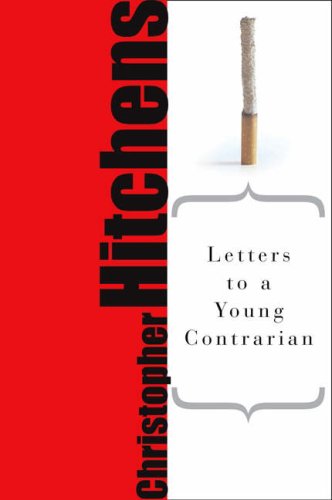Kings and Generals
Published 1 Oct 2017Napoleon Bonaparte is one of the most talented military leaders in the history, so every battle he fought is fascinating, as well as his complete knowledge of tactical and strategic aspects of the war. He was part of the French Revolution and ended it, he was the biggest conqueror of Europe, but also brought its unity closer. The battle of Marengo of 1800, which took place during the War of the Second Coalition between Napoleon and Austrian troops under Baron Michael von Melas is interesting, as French leader committed a big mistake, but was able to score a big victory through sheer will and tactical acumen.
Support us on Patreon: http://www.patreon.com/KingsandGenerals or Paypal: http://paypal.me/kingsandgenerals
We are thankful to our patreons, who made this video possible: Koopinator, Ibrahim Rahman, Daisho, Łukasz Maliszewski, Nicolas Quinones, William Fluit and Juan Camilo Rodriguez
This video was narrated by good friend Officially Devin. Check out his channel for some kick-ass Let’s Plays. https://www.youtube.com/user/Official…
Twitch ► https://www.twitch.tv/nurrrik_phoenix
Twitter ► https://twitter.com/KingsGenerals
Instagram ► https://www.instagram.com/nurrrrrik
Steam ► http://steamcommunity.com/id/nurrrik
Primary sources used:
Chandler, David (1966). Campaigns of Napoleon. Scribner.
Hollins, David (2000). The Battle of Marengo 1800. Osprey Publishing
Тарле Е. В. Наполеон // Собрание сочинений: в 12 томах. — М.: Издательство АН СССР, 1959.Inspired by: BazBattles, Invicta (THFE), Epic History TV and Historia Civilis, Time Commanders
Machinimas made on Napoleon: Total War
Production Music courtesy of Epidemic Sound: http://www.epidemicsound.com, Napoleon: Total War
Songs used:
Richard Beddow – “Napoleon Bonaparte” – Total War Napoleon Soundtrack
Peter Sandberg – “Subtle Substitutes 3”
Johannes Bornlof – “Solemn”
Magnus Ringblom – “Marching In”
Johannes Bornlof – “Exile Before Dishonor”
Rannar Sillard – “Emperors of Tomorrow 13”
Rannard Sillard – “Deathmatch 3”
Johannes Bornlof – “Barbarians”
October 5, 2020
Napoleonic Wars: Battle of Marengo, 1800
“Letters to a Young Contrarian was fundamentally a twentieth-century work by a man who thought of himself as a sixties radical”
In The Critic, Roland Elliott Brown considers the work of Christopher Hitchens, and particularly his Letters to a Young Contrarian from 2001:
The book is now nearly twenty years old. Hitchens wrote it in late 2000 and early 2001 for Perseus Books’ Rilke-inspired “Art of Mentoring” series, and it was published a month or so after 9/11. In view of this timeline, it occupies an eerily-placid DMZ between the “acceptable” 1990s Hitchens, whose only big sin against the political left had been to hound the centrist Bill Clinton, and the ostensibly-more isolated one post-2001, who took heart at the prospect of America using its military might against jihadis and Baathists. The book was largely a post-mortem on the intellectual battles of the twentieth century, and a lesson in writerly integrity. Today, it reads as a riposte to the new “populism” and the “awokening”.
Since Hitchens’s death from oesophageal cancer in 2011, his presence has been missed on major subjects. In a counterfactual world, it seems likely that Syria, ISIS, and the Iran nuclear negotiations (all entangled) would have occupied him in the first half of the 2010s, and that the potential unravelling of the American republic would have worried him in the second. Part of what his admirers miss, too […] is his performative flair. Though new media weren’t his passion, he owes much of his legacy to his YouTube archive, wherein his long-form lectures, debates, and C-span interviews seem, in hindsight, to have provided a model for the popularity of long-form podcasts.
The Letters can be read as a guide to giving an authentic performance as a political actor. Hitchens begins by selling an imagined student his lifestyle; in one good month, he writes (with some perhaps-inauthentic modesty), he has given evidence against Mother Teresa at the Vatican, taken pride in his arguments over Bosnia as Slobodan Milosevic went to the Hague, and had the thrill of being sued by Henry Kissinger. What the world needs now, the book implies, is for the young to find their appetite for the takedown. (One wonders to what extent his search for successors may have emerged from early intimations of mortality: in one C-span interview about the book, he also urged the youth not to take up smoking.)
[…]
But to reiterate, Letters to a Young Contrarian was fundamentally a twentieth-century work by a man who thought of himself as a sixties radical. Other sixties people like Noam Chomsky and Gore Vidal, with whom Hitchens would later fall out over the War on Terror, figure here in heroic roles. Radicals, he argues in the third chapter, are needed to force major issues. Would slavery have ended in America, he asks, if not for the fanaticism of John Brown? Many of his mentors — Peter Sedgwick, E.P. Thompson — were sometime British communists (and long-time socialists) who had ditched the Party after the Soviet invasion of Hungary (what a pity, then, that he never got to debate “the left” with Jordan Peterson).
Of course, Hitchens was not the only sixties radical to court influence in the 2000s, nor was he the most influential. Much of the radicalism he valued now comes to us — via less subtle mentors — in parody form: as sixties-worship gone sour, as a morbid focus on immutable characteristics, as a desire to short-circuit debate, as the unclean spirit that possesses young journalists to misrepresent their subjects so that they can gloat about the takedown. East of the old Iron Curtain, Alexander Lukashenko borrows a page from the dissidents of ’89 by carrying on “as if” there had been no pandemic, “as if” he had won a presidential election, and “as if” NATO was getting ready to invade Belarus. In such times, it seems worth living “as if” the cigarette-smoking ghost still had an eye on the scene.
Winchester Lever Action Development: Model 1866
Forgotten Weapons
Published 7 Jun 2017While the Henry Repeating Rifle had been an serious leap forward in firearms capability, it was not without problems. The biggest single weakness of the Henry was its magazine. The tube magazine was open to dirt and debris, the follower could easily come to rest on the shooter’s hand or anything used as a rest and stop the weapon from feeding, and the while system was rather prone to being damaged.
These problems would all be addressed with the addition of Nelson King’s new loading gate idea, which allowed Winchester to omit the exposed follower entirely, solving a bunch of complaints all at once. The new system was more durable, more reliable, and allowed the rifle to be loaded without the awkward manipulation required by the Henry. The King improvement also allowed the addition of a wooden handguard, which was a welcome addition — it does not take very many black powder rounds for a barrel to become uncomfortably hot to the touch.
At the same time that these improvements were being made, company politics were taking shape to end Benjamin T. Henry’s involvement with the company. Henry attempted to take over ownership of the company because he felt he was not profiting as much as he should, but he had assigned his patent rights to Oliver Winchester in exchange for his contract to manufacture the guns. As a result, Winchester was able to create a new company (the Winchester Repeating Arms Company) with full rights to the design patents and sideline Henry.
The 1866 rifle, which was formally called simply the Winchester Repeating Rifle would continue to use the .44 Henry Rimfire cartridge, but would be made in a wider variety of configurations than the Henry had been, including carbine, rifle, and musket barrel lengths. It would prove to be a very popular rifle, and opened the path to further improvement, as it put the Winchester company on excellent financial footing.
Cool Forgotten Weapons merchandise! http://shop.bbtv.com/collections/forg…
http://www.patreon.com/ForgottenWeapons
If you enjoy Forgotten Weapons, check out its sister channel, InRangeTV! http://www.youtube.com/InRangeTVShow
QotD: Language changes to accord with critical studies theory
A Canadian Broadcasting [Corporation] program also debuted a new term this past week: “non-straight cisgender people.” This is the newly approved newspeak for gay people, parsed through the language of critical queer studies. The proponents of this new language seem eager to retire familiar terms like “gay men” or “lesbians” — perhaps because they suggest that the homosexual experience is rooted in basic human nature and can exist outside the parameters of structural oppression. So they find ways to define us in terms of queer theory, insisting there are only oppressed LGBTQ+ people. That’s also why, for example, so many on the left insist that gay white men had very little to do with Stonewall, which was led, we’re told, by trans women of color, subsequently betrayed by white men, who stole the movement from them. That this is untrue is irrelevant. It’s a narrative which serves to dismantle structures of oppression. And that’s all that matters.
Leading progressive maternity and doula organizations now deploy and encourage a whole array of “gender-neutral language” with respect to sex, birth, labor, and parenting. And so we now have the terms “chest-feeding,” “persons who menstruate,” “persons who produce sperm,” and “birthing person” for breastfeeding, women, men, and mothers, respectively. And instead of a butthole, we have a “back-hole”; instead of a vagina, we have a “front hole.” “Ovaries” and “uterus” are now rendered as “internal organs,” which may strike you as somewhat vague. These may sound completely absurd now, but given the choke hold critical gender theory has on almost all elite organizations, you can be sure you’ll hear them soon enough. They’ll likely be mandatory if you want to prove you’re not a transphobe. It was an objection to one of these terms — “people who menstruate” — that got J.K. Rowling tarred again as a bigot.
Those of us who oppose this abuse of the English language, who try to abide by Orwell’s dictum to use the simplest, clearest Anglo-Saxon words to describe reality, are now instantly suspect. Given the fear of losing your job for resisting this madness, most people will submit to this linguistic distortion. As you can see everywhere, the stigma of being called a bigot sweeps away all objects before it. But the further this goes — and there is no limiting principle in critical theory at all — the less able we are to describe reality. Which is, of course, the point. Narratives, only narratives, exist. And power, only power, matters.
Andrew Sullivan, “China Is a Genocidal Menace”, New York, 2020-07-03.






